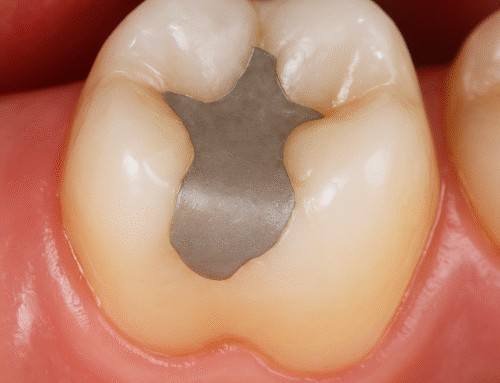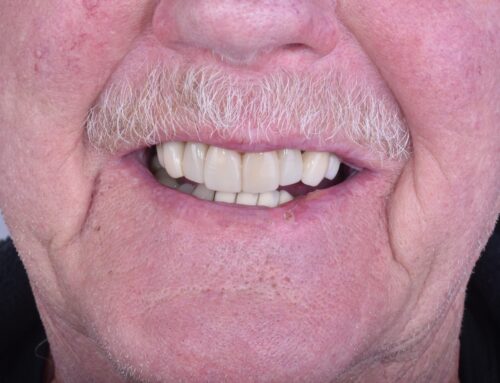Teeth whitening brightens your natural teeth by removing stains. It’s ideal if your teeth are healthy but discolored. It does not change the shape or position of your teeth.
Veneers are thin porcelain shells placed over the front of the teeth. They can change color, shape, size, and alignment, giving a complete cosmetic makeover. They’re best for people who want a more dramatic, long-lasting transformation beyond whitening. But which one is the right choice for you?
What is Teeth Whitening?
Teeth whitening is a process used to lighten the color of teeth. It involves the use of bleaching agents, typically hydrogen peroxide or carbamide peroxide, to break down stains and discoloration. There are two primary categories of teeth whitening:
- At-home Whitening Kits: These include over-the-counter products like whitening strips, toothpaste, and trays. While they are less expensive, the results can vary and are often not as dramatic as professional treatments.
- Professional Teeth Whitening: Performed by a dentist using stronger bleaching agents. This method produces faster and more noticeable results, making it a popular option for individuals looking to significantly enhance their smile in a short period.
How Does Teeth Whitening Work?
The teeth whitening process works by breaking down the molecules that cause staining. When the bleaching agent is applied to the teeth, it penetrates the enamel and breaks apart the colored molecules, leaving the teeth brighter. The dentist will typically apply a protective barrier to your gums before applying the whitening solution. The entire process is painless and usually takes about an hour.
What are Veneers?
Veneers are custom-made shells that cover the front surface of the teeth. They are typically made from porcelain or composite resin and are designed to mimic the natural look of teeth. Veneers are a more permanent solution and can address several cosmetic issues beyond discoloration, including:
- Chipped or broken teeth
- Gaps between teeth
- Minor misalignment
- Irregularly shaped teeth
How are Veneers Applied?
The process of applying veneers is more invasive than teeth whitening. To place a veneer, the dentist must first remove a small amount of enamel from the surface of the tooth, which is then replaced with the veneer. This preparation ensures a snug fit and a natural appearance. Once the enamel is removed, an impression of the tooth is made, and the custom veneer is created in a dental lab. At the next appointment, the veneer is bonded to the tooth using a special cement and light-cured for a secure fit.
Teeth Whitening vs. Veneers: Key Differences
Choosing between teeth whitening and veneers depends on your specific dental needs and goals. Let’s break down the main differences to help you make an informed decision.
1. Purpose and Function
- Teeth Whitening: Specifically designed to brighten and whiten the color of teeth. It works best for surface stains caused by coffee, tea, wine, and smoking.
- Veneers: While veneers can also brighten your smile, they offer a comprehensive cosmetic solution. Veneers not only alter the color but also the shape, size, and alignment of teeth. They can conceal chips, cracks, and even minor gaps.
2. Procedure Complexity
- Teeth Whitening: Simple and non-invasive. It requires only a single appointment for professional in-office treatment.
- Veneers: More complex, involving multiple steps and permanent alteration of tooth structure.
3. Longevity
- Teeth Whitening: Results can last up to 2-3 years, depending on oral hygiene and lifestyle habits.
- Veneers: Can last 10-15 years or longer with proper care. However, they may need to be replaced if damaged or if the surrounding gum tissue recedes.
Benefits of Teeth Whitening
- Non-Invasive Treatment: No removal of enamel, making it suitable for most patients.
- Quick and Painless: Can be completed in a single visit.
- Cost-Effective: A less expensive option compared to veneers.
- Safe and Effective: When performed by a dentist, it’s safe and delivers consistent results.
Drawbacks of Teeth Whitening
- Limited Longevity: Results may fade over time.
- Does Not Address Structural Issues: Whitening is only for color enhancement and does not correct shape or alignment issues.
- Sensitivity: Some patients experience tooth sensitivity after treatment.
Benefits of Veneers
- Versatility: Can address a variety of cosmetic concerns.
- Natural Appearance: Porcelain veneers, in particular, look very natural.
- Stain Resistance: Porcelain is less likely to stain compared to natural tooth enamel.
- Long-lasting Solution: With good care, veneers can last for decades.
Drawbacks of Veneers
- Permanent Tooth Alteration: Enamel is removed, and it cannot be restored.
- Higher Cost: Veneers are significantly more expensive than teeth whitening.
- Potential Damage: While durable, veneers can chip or break, requiring repairs or replacements.
When is Teeth Whitening the Better Option?
Teeth whitening is ideal for individuals who:
- Have generally healthy teeth and gums.
- Are primarily concerned with discoloration and want a quick, non-invasive solution.
- Want to enhance their smile for an upcoming event, such as a wedding or photoshoot.
When are Veneers the Better Option?
Veneers are the superior choice if you:
- Have multiple aesthetic concerns beyond just the color of your teeth.
- Want a dramatic and long-lasting transformation.
- Are willing to invest in a more permanent cosmetic solution.
Teeth Whitening vs. Veneers: Maintenance and Aftercare
Teeth Whitening Aftercare Tips
- Avoid Stain-Causing Foods and Beverages: Coffee, tea, red wine, and berries can quickly re-stain teeth.
- Practice Good Oral Hygiene: Brush twice a day and floss daily to maintain results.
- Use a Whitening Toothpaste: To prolong the effects, use a whitening toothpaste recommended by your dentist.
Teeth Whitening vs. Veneers
Both teeth whitening and veneers are effective ways to improve the appearance of your smile, but they serve different purposes. Teeth whitening is a quick, non-invasive, and affordable way to brighten your smile, making it a great option for those with minor discoloration. Veneers, on the other hand, provide a more comprehensive solution for various cosmetic concerns and deliver long-lasting results.
Ultimately, the best choice depends on your unique needs, budget, and desired outcome. Consulting with your dentist will help you determine which option is right for you. Whether you choose teeth whitening or veneers, investing in your smile is always a step towards greater confidence and self-assurance.




